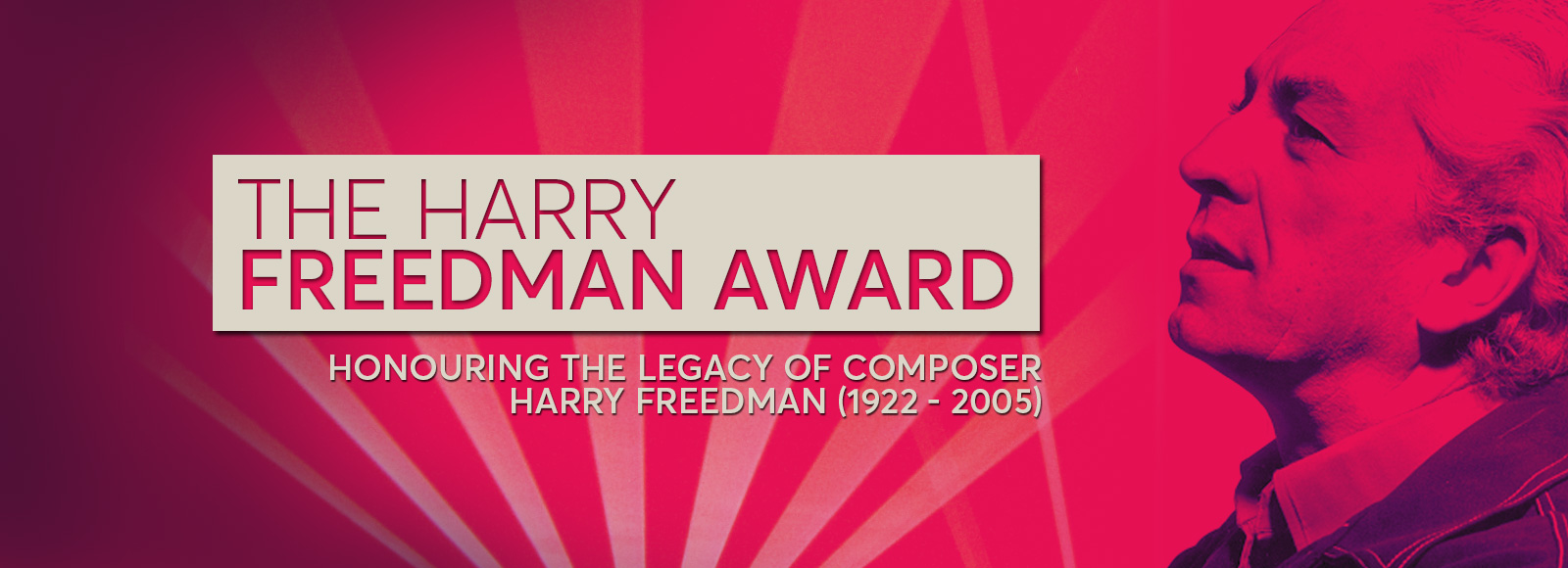Deadline Extended!
The Harry Freedman Award was established by the Freedman family to commemorate the pioneering Canadian composer. Born from Freedman’s desire to address the lack of resources for the rehearsal and refinement stages of a work outside of its premiere performance, the Freedman family set up a bi-annual award to supplement ongoing project preparations, whether for a significant live performance or for a commercial recording of a work.
The proposed work must have been created for 1 – 6 performers (including engineers) or for a composer-performer. The specific activities must be related to refining and revising the work after its première and must be a collaboration between the composer and performer(s). The ongoing project should ultimately lead to a more definitive and satisfactory version of the work. The Harry Freedman Award is valued at $3,000 Canadian.
For More Information
Call Joseph Glaser, Director Ontario Region, 416.961.6601 x005

